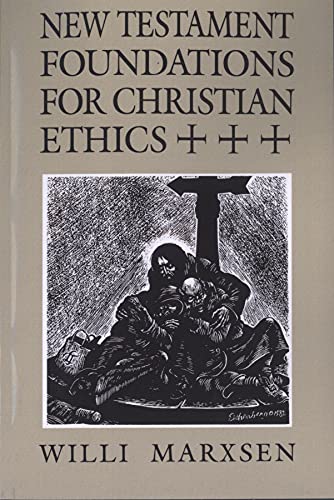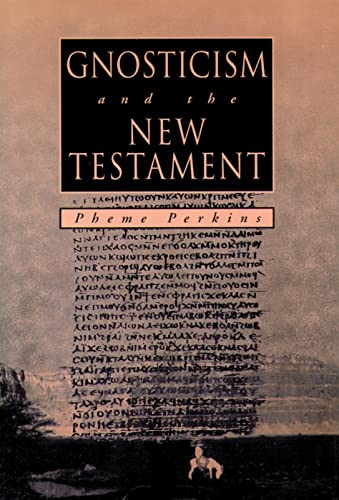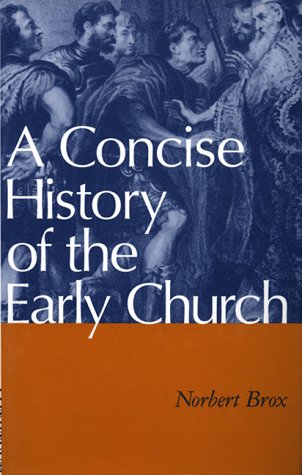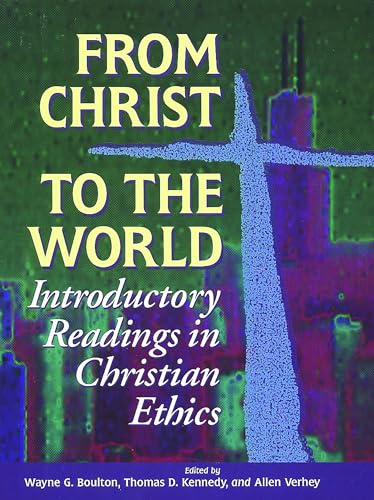New Testament Foundations for Christian Ethics
Written by Willi Marxsen, trans. O.C. Dean, Jr Reviewed By Stanley E. PorterWhat is the basis for Christian ethics? What is its relationship to the biblical texts, especially the text of the NT? Does the NT have a Christian ethic, or does it have several Christian ethics? If there are ethics, are they in harmony or are they divergent? If they are divergent how does one decide which one or ones to follow, and what does this imply regarding one’s view of Scripture? In determining one’s ethic or ethics, what critical tools should and need to be used? In using critical tools, how does one utilize historical-critical methods to arrive at timeless or normative ethical mandates? How do these norms relate to other categories of thought, such as systematic theology? These are only some of the questions that must be raised in attempting to arrive at a concept of Christian ethics. Although the task is a daunting one, scholars continue to tackle the issue, and the latest to do so is the late Willi Marxsen.
In one of his last scholarly works before his death in 1993, published in its original German edition in 1989, Marxsen raises many important issues in attempting to find the basis for Christian ethics. Although many readers of Themelios will want to disagree with many of the conclusions that Marxsen arrives at, there is much to be said for his raising the questions that he does. The task that Marxsen sets for himself is almost Herculean in scope, although his actual analysis focuses much more on the biblical text. The book then is one both of method and of content.
With regard to method, Marxsen attempts to address the question of ethics by approaching it through theology. After appreciating the deficiencies in ethical discussion, he places Christian ethics within the larger fields of systematic and historical theology. Along the way he raises questions regarding who God is and how the human relates to God. Some of this discussion seems to be based more upon German semantics than the issues themselves.
With regard to content, Marxsen takes seriously his higher-critical heritage, and outlines two basic approaches to ethics: ethics oriented toward Jesus and the ethic of Paul. He denies the possibility of finding the ethics of Jesus and instead approaches the study by means of debate on the quest for the historical Jesus. In other words, Marxsen, utilizing the tools of higher crlticism, must weave his way through a number of different texts that reveal a variety of ethics towards Jesus. He differentiates two classes of Gospel statements: those essential texts (Mk. 1:14–15 and Mt. 11:2–6) that reflect ‘the’ image of Jesus, and a host of other texts that reflect ‘development’ of the image of Jesus, In discussing the ethic of Paul, Marxsen works only from the agreed upon letters. Seeing Paul’s, Damascus road experience as the crucial event in Paul’s life, he explores the change of content for Paul from Jewish evangelist of Gentiles (I am not sure that he is right here) and persecutor of Christians to evangelist of Gentiles as Christian. Drawing upon the indicative-imperative formulation of Bultmann, Marxsen creates a model in which both are necessary, the one the ground of the other.
In the last portion of the book, Marxsen talks about some developments of Christian ethics in the NT, including disparagement of Matthew for introducing a pharisaical ethic, James as not constituting a Christian ethic and the Johannine school undermining the Johannine ethic. The authors of 1 Peter, Colossians and Hebrews fare better.
While Marxsen has raised many interesting questions and shown one way to approach ethics, his solution is ultimately unsatisfactory, and for several reasons. First, because of his critical assumptions, he is left with a very insecure foundation for his ethical position. As he expresses it in his excursus on Pauline statements regarding Jesus’ cross and resurrection, what his ethical position boils down to is what a given person might have meant by a particular statement, and why it was formulated the way it was. Ethics ends up being essentially a set of personal preferences reflected in the biblical text, revealed and exposed in all of their divergent individuality.
Secondly, one might have more confidence in such an approach if the author showed that he was fully cognizant of the many issues surrounding such methods today. On the one hand it is commendable that Marxsen has attempted to integrate historical criticism, ethics and theology, but his historical-critical method shows signs of age. For example, the use of the Indicative and imperative stance is not appreciative of the grammatical and epistolographical issues overlooked by such a formulation. Marxsen repeatedly calls for close attention to linguistic matters, but for him this seems to mean a rather quaint kind of linguistics in which much is made, for example, of the difference between chronos and kairos.
Thirdly, a good bit of the research behind this book is either shallow or outdated. For example, Marxsen’s formulation of the problems related to the quest for the historical Jesus appear to be decades behind and confined to a German position, and it is no wonder that he takes the sceptical view of the Gospels that he does. There are also numerous other passages discussed where more recent work has moved beyond the kinds of assumed interpretations that he relies upon.
Fourthly, one realizes that, despite his initial comments. Marxsen has a very narrow set of presuppositions regarding the priority of the NT text. His historical-critical findings take precedence in creating an ethical position, so much so that he can determine whether a biblical writer such as James has a Christian ethical stance. The problem is not the conclusions per se, but the appearance of having arrived at them through what purports to present itself as an objective method.
In sum, whereas this book raises many important questions and tackles a huge task in a way that may well prove ultimately useful, Marxsen’s rather quaint use of the historical-critical method of sceptical regard for the biblical witness render his conclusions less than satisfactory.
Stanley E. Porter
Roehampton Institute, London






